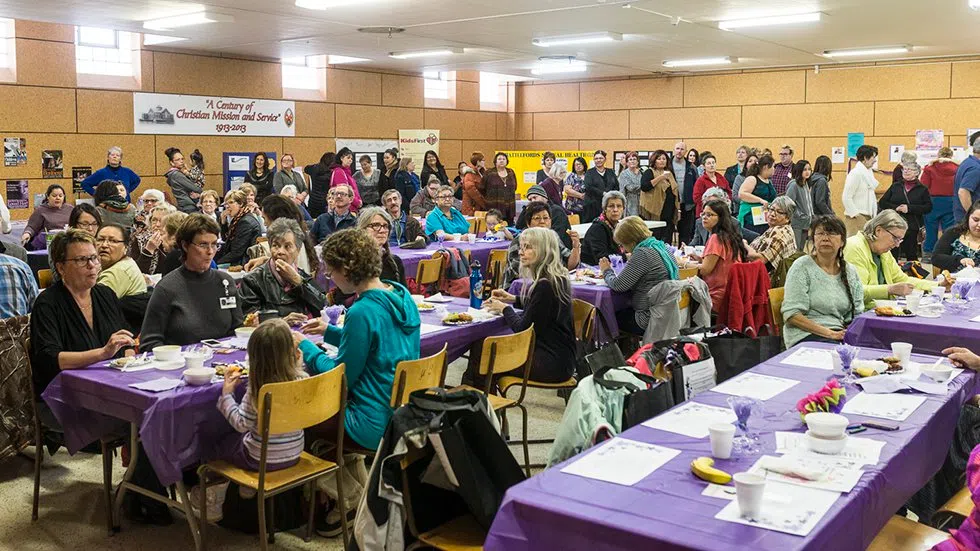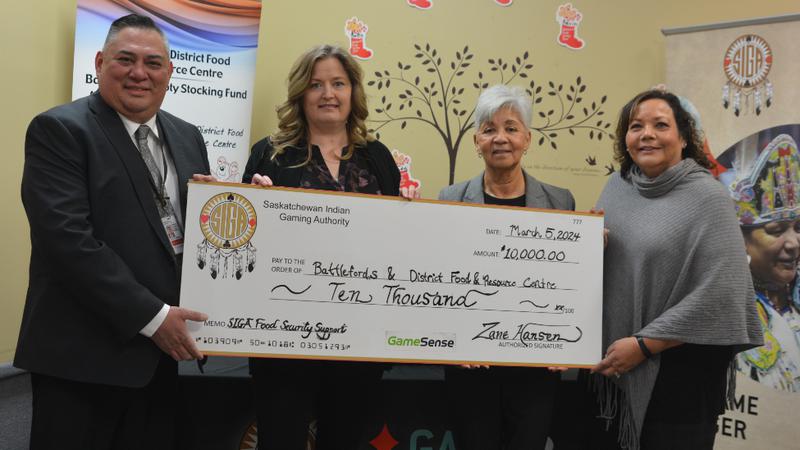
Poverty biggest issue facing women, says advocates
Poverty is the number one issue women face in North Battleford, said women’s advocates and aid workers during an International Women’s Day event at United Church on Friday, March 4.
“Poverty leaves people open to exploitation,” Eleonore Sunchild, a First Nations lawyer specializing in residential school cases, said during a speech. It is poverty, she said, that keeps indigenous women subjugated.
Many young women’s issues stem from the “impoverished areas or home that they physically live in,” Kayla Kravetz, an outreach worker with Concern for Youth, said.
“We’re just here for advice and to encourage [young women], as a lot of these girls don’t have that at home, and they don’t have role models.”


